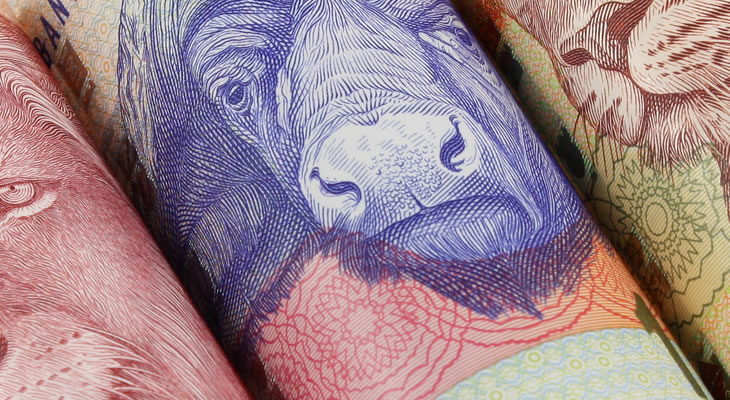Stronger South African Inflation Keeps Lid on Pound South African Rand (GBP/ZAR) Exchange Rate
As the South African inflation rate strengthened from 4.0% to 4.5% on the year in January the Pound Sterling to South African Rand (GBP/ZAR) exchange rate came under fresh pressure.
While inflation hit a seven-month high this is not expected to have any material impact on the outlook of the South African Reserve Bank (SARB), limiting selling pressure on the South African Rand (ZAR).
Even so, as doubts over the health of the South African economy remain ZAR exchange rates struggled to make any significant headway in the wake of the data.
With markets still wary of the potential for the economy to suffer a further loss of momentum in 2020, in part thanks to the wider global trade slowdown, demand for the Rand proved muted.
Nevertheless, as Pound Sterling (GBP) fell generally out of favour once again, fuelled by Brexit-based anxiety, the GBP/ZAR exchange rate remained biased to the downside.
Rising UK Inflation Fails to Prevent Pound Sterling Selling
Although the UK consumer price index picked up to a six-month high on Wednesday this was not enough to prevent Pound Sterling from trending lower.
Even with the headline inflation rate rising to 1.8%, approaching the Bank of England’s (BoE) 2% target, markets still saw little cause for confidence.
As Ruth Gregory, senior UK economist at Capital Economics, noted:
‘While CPI inflation rose for the first time in six months, the inflation figures were in line with the Bank of England’s expectations, so they are unlikely to move the dial on the outlook for interest rates.
‘CPI inflation still looks likely to slip back to 1.5% within the next few months and remain below 2% for the rest of the year.’
As long as markets see reason to bet on the BoE cutting interest rates in the months ahead the GBP/ZAR exchange rate looks set to remain on a weaker footing.
Mixed UK PMIs Forecast to Drive GBP/ZAR Exchange Rate Volatility
Worries over the outlook of the UK economy may intensify ahead of the weekend unless February’s flash manufacturing and services PMIs can impress investors.
With the manufacturing sector expected to slip below the neutral baseline of 50 once again, returning to a state of contraction, the risk of a first quarter growth slowdown looks set to rise.
On the other hand, GBP exchange rates could find a fresh rallying point on Friday if the services PMI remains firmly within expansion territory.
Evidence that the service sector continued to deliver solid growth in February would suggest a greater level of economic resilience in the first quarter, easing fears of a potential gross domestic product disappointment.
With the service sector accounting for nearly three quarters of UK growth a stronger showing here could easily overshadow a weak manufacturing figure, paving the way for GBP/ZAR exchange rate gains.


Comments are closed.